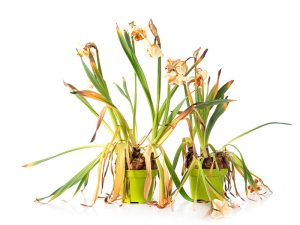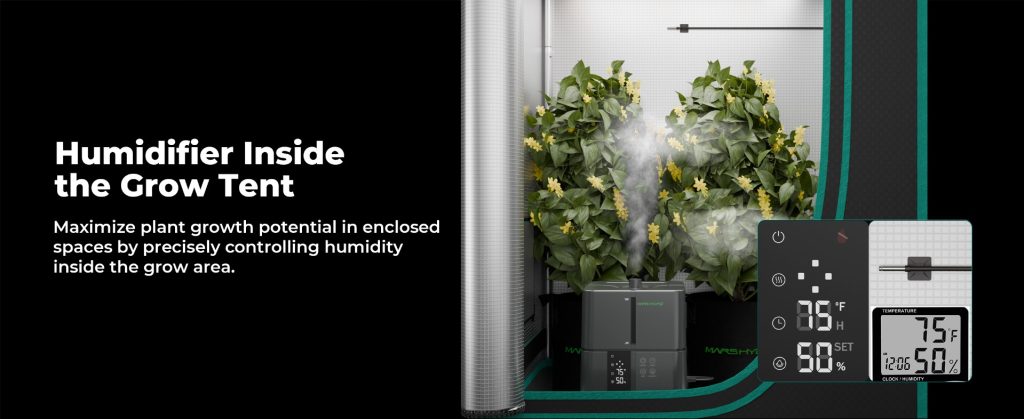Welcome, fellow plant enthusiasts! Have you ever wondered why your indoor garden isn't flourishing as much as you’d hoped? The secret could lie in the humidity of your environment. Humidity is often overlooked in plant care, yet it's crucial for achieving a lush indoor garden. So, let's explore the world of indoor gardening and see how adding a humidifier can turn your space into a thriving green haven. Whether you’re just starting out or you’re a seasoned gardener, you’ll discover that the right moisture levels might just be the key to nurturing happier, healthier plants.
Ready to quench your plants' thirst? Let's dive in!
Why Humidity Matters for Plants
Plants thrive in comfortable environments, and humidity plays a vital role in their growth and health. Here’s why:
Photosynthesis and Humidity
Photosynthesis, the process by which plants convert light into energy, relies heavily on water vapor. Plants open small pores on their leaves called stomata to absorb carbon dioxide, essential for photosynthesis. In low humidity, these stomata might close to conserve water, reducing the plant’s ability to absorb CO2 and affecting its energy production. The right humidity level ensures these stomata stay open enough for effective gas exchange, promoting robust growth.
Transpiration and Plant Health
Transpiration involves water moving from the roots to the leaves, where it evaporates, aiding in nutrient uptake and cooling the plant on hot days. Adequate humidity is critical to manage transpiration rates. If the air is too dry, plants may lose water too quickly, leading to stress and dehydration.
Humidity Requirements Across Different Growth Stages
Different stages of a plant's life require specific humidity levels:
- Seedlings and Cuttings: With underdeveloped root systems, young plants and cuttings thrive in high humidity, around 70-75%, to retain moisture and encourage root growth.
- Vegetative Stage: As plants grow leaves and stems, a humidity level of 60-70% supports this active growth and helps develop a strong structure.
- Flowering and Fruiting Stage: Lower humidity levels, between 40-50%, during this stage can reduce the risk of fungal infections and promote the development of flowers and fruits, enhancing their quality and longevity.
Understanding and managing these specific humidity needs can significantly boost the health and productivity of your plants. This is where a humidifier becomes invaluable, especially in controlled environments like indoor gardens, where natural cues might be missing.
Adverse Effects of Low Humidity on Plants
When humidity levels fall below the optimal range, our plant friends face significant challenges to maintain their health and vibrancy. Let's delve into the issues they might face in dry environments.
Stunted Growth
Imagine trying to bake a cake with too little water; similarly, plants struggle to perform essential functions in a dry environment. Low humidity impairs photosynthesis and transpiration—the vital processes that drive plant growth and vitality. In dry air, plants can't draw sufficient water through their roots to meet their needs, leading to slower growth and diminished health.
Leaf Desiccation
Leaves are vital to plant life, yet in low humidity, they suffer greatly. Lacking moisture in the air, leaves may dry out, becoming brittle and fragile. Signs like curling leaves, which attempt to minimize surface area to conserve water, or the appearance of brown tips and edges, signal a plant's plea for a more humid environment.
Vulnerability to Pests and Diseases
Dry conditions do more than physically stress plants; they also make them more susceptible to pests and diseases. Pests such as spider mites thrive in dry settings and can quickly overwhelm weakened plants. Additionally, certain fungal diseases find it easier to infect stressed plants with compromised defenses. Maintaining plants in dry conditions effectively invites these unwelcome invaders.
Benefits of Humidifiers for Plant Growth
Recognizing these challenges underscores the importance of maintaining proper indoor humidity—not just for comfort but for plant health. The negative effects of low humidity are severe but preventable. Here’s how humidifiers can transform your indoor garden into a verdant haven:
- Improved Air Humidity: Humidifiers adjust humidity to an ideal range, simulating a natural environment for plants.
- Enhanced Plant Health and Growth: Adequate humidity promotes leaf growth, improves photosynthesis efficiency, and contributes to overall plant health.
- Prevention of Dry Leaves and Curling: Proper humidity levels keep foliage lush and prevent drying effects.
- Reduced Pest and Disease Incidence: Balanced humidity helps deter pests and lowers the chance of disease.
While these are primary benefits, the advantages of using a humidifier extend further:
- Enhanced Water Utilization Efficiency: Plants regulate water usage more effectively, reducing the frequency of watering.
- Consistent Soil Moisture: Humidifiers maintain soil moisture, supporting root health and nutrient absorption.
- Improved Water Retention in Plants: Helps plants keep a better internal moisture balance.
- Enhanced Nutrient Uptake: A well-humidified environment boosts nutrient absorption through the roots.
- Increased Flower and Fruit Production: Healthier plants are likely to produce more blooms and fruits.
- Enhanced Aroma and Flavor of Herbs and Edible Plants: Optimal humidity enhances the aromatic and flavor profiles of culinary herbs and other edible plants.
By maintaining the right humidity levels, you not only ensure plant health but also optimize their overall function and contribution to your indoor ecosystem.
Choosing the Right Humidifier
As we've seen, humidifiers play a crucial role in enhancing plant growth and bolstering their resistance against diseases and pests. Proper humidity management is truly foundational for successful indoor gardening. With this understanding, let’s consider how to choose the right humidifier to ensure your garden doesn't just survive but thrives indoors.
Key Factors for Choosing a Humidifier:
- Size of the Planting Area: The dimensions of your grow tent or indoor garden dictate the required humidifier capacity. Larger areas need humidifiers with greater output to maintain optimal humidity levels.
- Number of Plants: More plants mean greater collective moisture needs. This may require a larger humidifier or multiple units to evenly distribute moisture.
- Type of Humidifier: Ultrasonic cool mist humidifiers are favored for their quiet operation and effective mist dispersion, maintaining consistent humidity without over-saturation.
Why the Mars Hydro 5L Humidifier is a Superb Choice
- Optimal Capacity and Coverage: The Mars Hydro 5L humidifier features a 5L reservoir, ideal for efficiently humidifying areas up to 269 ft². It's perfect for small to medium-sized gardens, ensuring adequate moisture for optimal growth, whether in a grow tent, greenhouse, or other indoor spaces.
- Advanced Humidity Control: This humidifier uses ultrasonic technology for precise humidity management, with adjustable mist settings from 35% to 95%. It includes a humidity sensor that monitors the humidity and adjusts the mist output to maintain consistent humidity, ensuring perfect growing conditions.
- Quiet and Efficient: It operates below 35dB and can run up to 32 hours, promoting a peaceful, energy-efficient environment.
- User-Friendly Features: Designed for convenience, it features a touchscreen, remote control, telescopic hose for targeted moisture, and a timer function for up to 12 hours, minimizing the need for frequent checks.
- Safety and Convenience: Includes an automatic shut-off for low water levels and a real-time temperature display, ensuring hassle-free operation.
The Mars Hydro 5L Plant Humidifier excels in performance and convenience, making it an essential addition for any indoor garden. Investing in this humidifier can transform your indoor garden into a vibrant, thriving environment.
Conclusion
Integrating a humidifier into your indoor gardening setup is pivotal for achieving a lush, healthy garden that mimics the natural habitat of your plants. Whether you're caring for a few houseplants or managing a large indoor garden, adding a humidifier is a smart investment that promotes plant health and vitality.







